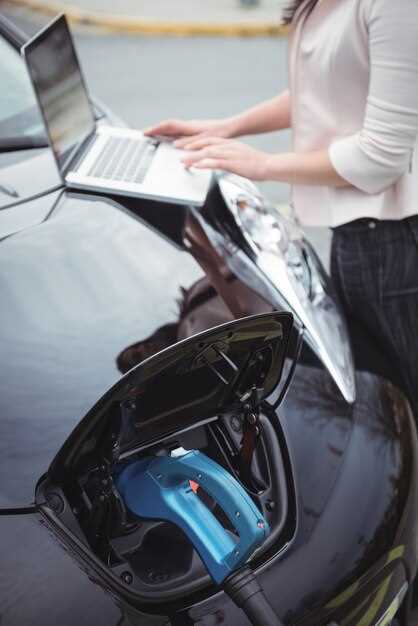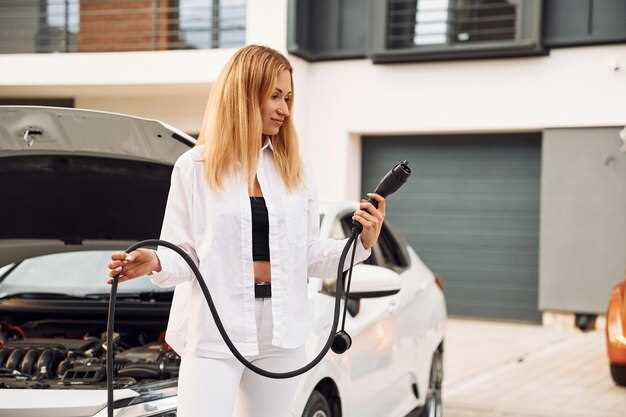
Maintaining your electric vehicle (EV) is crucial for ensuring optimal performance, longevity, and overall efficiency. Unlike traditional internal combustion engine vehicles, EVs require a unique approach to maintenance due to their distinct components and operating principles. This article will cover some of the best practices for keeping your electric vehicle in top shape, helping you enjoy all the benefits of clean and efficient transportation.
Regular maintenance is key in extending the life of your EV. While electric vehicles generally require less upkeep than conventional cars, there are still essential tasks that need attention. This includes monitoring battery health, checking tire pressure, and ensuring that your vehicle’s software is up to date. Understanding these requirements will help you maintain your EV’s performance and avoid potential issues down the line.
Battery care is one of the most vital aspects of EV maintenance. Since the battery is the heart of your electric vehicle, proper management of its charge cycles and temperature can significantly impact its lifespan. Additionally, familiarizing yourself with your manufacturer’s maintenance recommendations will ensure that your vehicle continues to run smoothly while maximizing its efficiency.
Regular Battery Health Checks to Avoid Costly Replacements

Maintaining the health of your electric vehicle’s battery is crucial for ensuring its longevity and performance. Regular battery health checks can significantly contribute to cost-saving measures, helping you avoid the high expenses associated with premature battery replacements.
Firstly, consistent monitoring of battery capacity and charge cycles enables you to identify potential issues early. Utilizing diagnostic tools or software can provide insights into your battery’s current state and performance metrics. This proactive maintenance approach allows for timely interventions, such as recalibrating or updating the battery management system.
Secondly, keeping your battery within the optimal temperature range helps prevent damage. Extreme heat or cold can adversely affect battery performance and lifespan. Regular checks can help ensure that your vehicle’s cooling and heating systems are functioning efficiently, which is vital for long-term maintenance.
Additionally, regularly inspecting battery connections for corrosion or loosening can prevent power loss and ensure optimal functionality. Secure and clean connections contribute to overall battery efficiency, reducing the need for more extensive and costly repairs later on.
Lastly, understanding your driving habits and making necessary adjustments can enhance battery health. Engaging in eco-friendly driving practices, such as avoiding rapid acceleration and maintaining a steady speed, can reduce strain on the battery, ultimately leading to better performance and maintenance.
In conclusion, implementing regular battery health checks is an essential practice for electric vehicle owners. By prioritizing this proactive maintenance, you can effectively reduce the risk of costly replacements and ensure your vehicle remains in peak condition for years to come.
Optimal Tire Maintenance for Improved Efficiency and Safety

Proper tire maintenance is crucial for electric vehicles (EVs) as it directly impacts both efficiency and safety. Regularly checking tire pressure, tread depth, and alignment can enhance your driving experience and extend the lifespan of your tires.
Tire Pressure: Maintaining the correct tire pressure is essential for EVs because under-inflated tires can lead to increased rolling resistance, which adversely affects battery efficiency. Always check the tire pressure at least once a month and before long trips. Refer to the manufacturer’s guidelines for the recommended pressure levels.
Tread Depth: Monitoring the tread depth helps ensure adequate traction, especially in adverse weather conditions. Use the penny test: insert a penny into the tread with Lincoln’s head facing down. If you can see all of Lincoln’s head, it’s time to replace your tires. Regular inspections can prevent hydroplaning and reduce stopping distances.
Alignment: Proper wheel alignment is vital for even tire wear and optimal handling. Misalignment can cause tires to wear unevenly, compromising safety and efficiency. If you notice your EV pulling to one side or experiencing unusual vibrations, have the alignment checked by a professional.
Additionally, consider rotating your tires every 5,000 to 7,500 miles to ensure even wear. Following these tire maintenance practices not only enhances your EV’s efficiency but also ensures a safer driving experience.
Software Updates and Their Role in Vehicle Performance
Software updates are crucial for optimizing the performance of electric vehicles (EVs). These updates can enhance the efficiency of vehicle systems, improving energy management and overall driving dynamics. Regularly updating software ensures that the EV operates at its best, taking full advantage of the latest technological advancements.
Many automakers release updates to address various aspects of vehicle performance. This can include improvements in battery management systems, which are essential for maximizing range and efficiency. By integrating smarter algorithms, updates can enhance regenerative braking and optimize energy consumption during driving, resulting in significant cost-saving benefits for the owner.
Software updates also play a role in improving safety features within the vehicle. Enhancements to advanced driver-assistance systems (ADAS) can lead to better handling in various driving conditions and reduce the likelihood of accidents. Keeping these systems updated ensures that the vehicle adheres to the latest safety standards and protocols.
In addition, software updates often include new features that elevate the user experience. This may involve improvements in navigation systems, infotainment upgrades, or even new driving modes that can be activated through the update. Such enhancements not only improve functionality but also increase the enjoyment of driving an EV.
Overall, timely software updates are essential for optimizing performance, enhancing safety, and maximizing the longevity of your electric vehicle. By embracing these updates, EV owners can ensure they are benefiting from cutting-edge technology while maintaining the vehicle’s operational efficiency and cost-saving potential.


